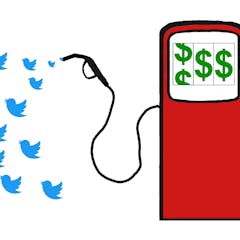
Articles on Researchers
Displaying 1 - 20 of 44 articles

The cycle of opportunity and prestige for historically advantaged institutions leaves historically Black institutions on the back foot.

Some study the crisis, but all are worried – and frustrated.

Growing awareness of sexual harassment and discrimination in the field prompted an international survey and research into potential solutions.

Our research found non-native English speakers face higher rejection rates and 12.5 times more revisions than their native English-speaking counterparts. But there are solutions.

Twitter has long allowed anyone to access its data about who tweeted what and when. This has been a boon to research, from public health to criminology. The new fees put that research at risk.

Researchers have a number of responsibilities when embarking on their work - not least of all to the participants.

Researchers in sub-Saharan Africa ought to fuse conventional Western theories of knowledge and local theories of knowledge.

Peer review of research sounds like it should be a conversation between equals. Instead, it can be patronizing, demanding and simply unkind. A group of journal editors thinks this should change.

The movement to change the way researchers are measured should undoubtedly be embraced.

History always served as a weapon in the former Soviet Union, a way to control the narrative and deny the truth of the past. Vladimir Putin is now attempting to control this narrative through war.

The male-dominated makeup of the industry partners who are meant to lead the commercialisation of research could undermine the work towards gender equity in Australian universities.

Australia has world-class research but low rates of research commercialisation by global standards. The scale and cultural focus of the government’s plan mean it could have an impact on this problem.

It’s easy for researchers to fall back on using test subjects from the communities around them – students and employees. Branching out is key to avoiding technology that fails certain populations.

Research ethics focus on avoiding wrongdoing, having been developed largely in response to biomedical scandals. Climate change puts the onus on researchers to add ‘do good’ to ‘do no harm’ principles.

Academics in all areas have deep concerns about their ability to undertake research during the pandemic and the flow-on effects of this. Women and early career researchers were particularly hard hit.

Historians, archivists and other researchers got in touch with tales of their archival finds and bizarre research moments. These ranged from the quirky to the disturbing to the profound.

A lot has happened since the WHO declared the coronavirus outbreak a pandemic. A portrait in data highlights trends in everything from case counts, to research publications, to variant spread.

Nigeria’s academic community is mourning the death of virology professor and leading researcher, David Olufemi Olaleye.

Giving money to support local production of COVID-19 vaccines is a step in the right direction if it will help in resuscitating Nigeria’s vaccine production laboratory.

The early and mid-career researchers who bear most of the teaching and research workload are exhausted and underpaid. Many won’t survive the funding squeeze, but Australia can’t afford to lose them.
